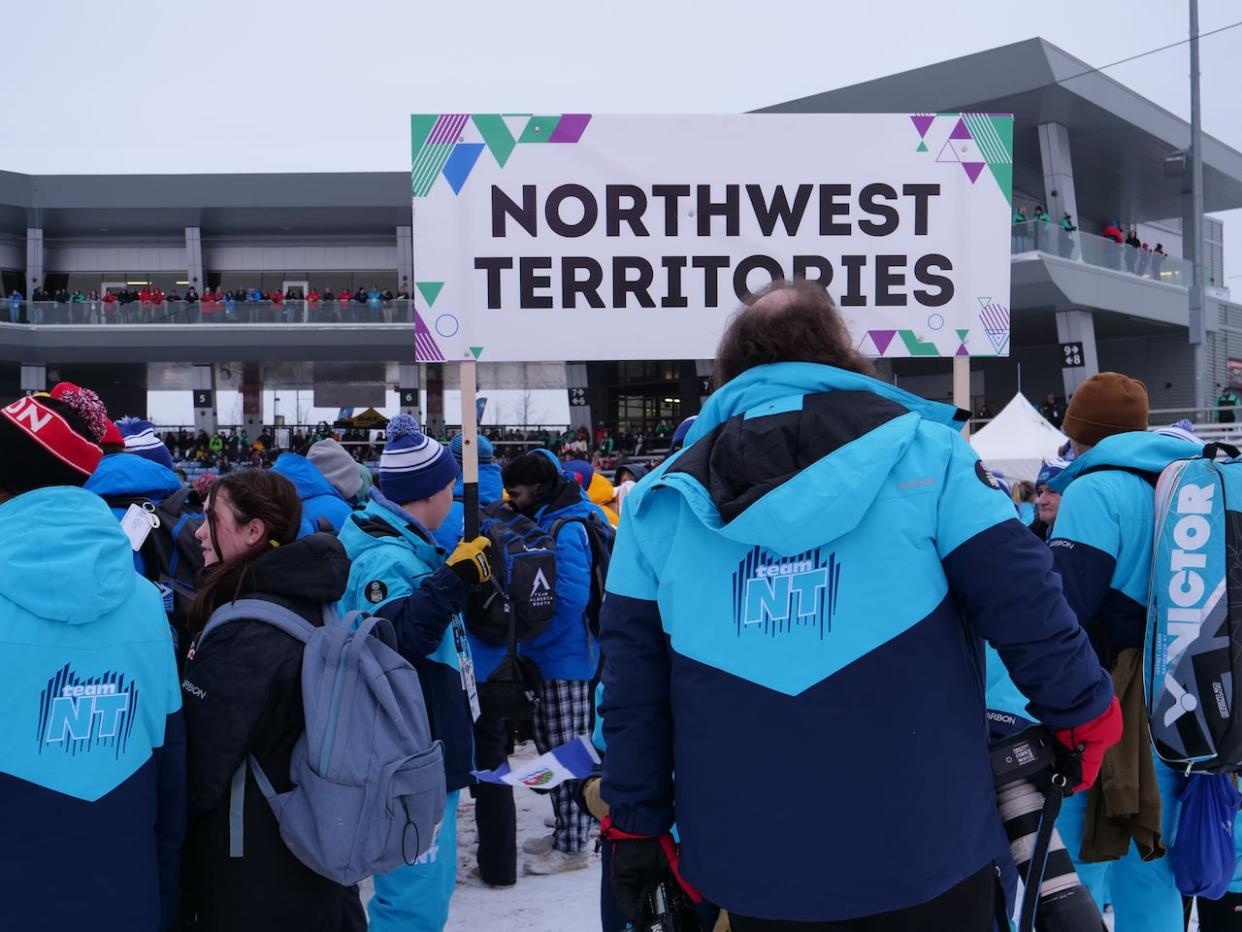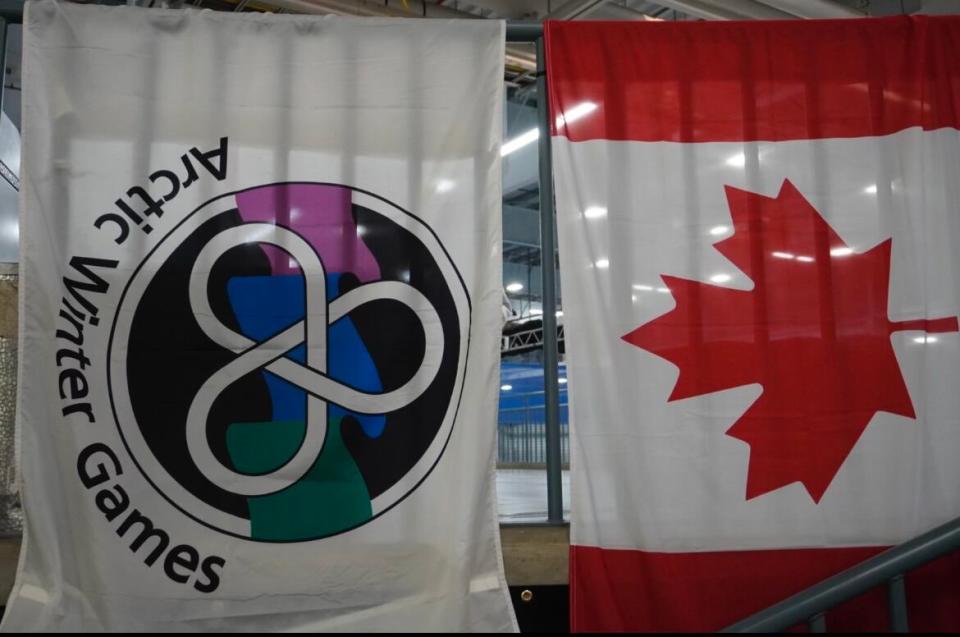Around 30 N.W.T. athletes without passports as Arctic Winter Games approach

A young athlete from Délı̨nę, N.W.T., may miss the 2024 Arctic Winter Games next month in Alaska as she isn't able to access any passport services in her community.
Sifera Kenny Takazo, the 15-year-old Délı̨nę athlete, isn't alone in the situation. The N.W.T.'s chef de mission said there may be as many as 30 athletes from the territory who still don't have their passports and the deadline to provide them to the host community — Palmer, Alaska — is only days away.
Kenny Takazo said the deadline crept up on her as she lost her phone about six weeks ago and missed emailed reminders. But she says even if she had seen them, there was little she could've done living thousands of kilometres away from the nearest passport office.
Kenny Takazo's mother, Kaylene Mabbitt, says one of the biggest obstacles is that they need a commercial photographer to take the passport photo, which isn't available in Délı̨nę. With the deadline approaching, the only possible way for Kenny Takazo to get a passport in time would be for her and a caretaker to fly to Edmonton and go to a passport office.
The next available flight from Délı̨nę to Yellowknife costs over $2,000 a ticket for a round trip, then $1,500 a ticket for Yellowknife to Edmonton round trip, on top of the cost of accommodations.
That means a last-minute trip to get the passport could cost them as much as $8,000.
For Mabbitt, the situation is reflective of a larger issue, of the barriers remote communities face in access to sport compared to larger centres like Yellowknife.
Mabbitt feels there should've been more reminders and correspondence provided to the athletes' caretakers instead of the athletes themselves.
A challenge across the North
Rita Mercredi, chef de mission for Team N.W.T. at the Arctic Winter Games (AWG), says Sport North, which organizes the team, has reminders about passports on its website and in handbooks, and has also provided reminders to coaches at the tryouts and even provided reminders after last year's games.
"The messaging about passports has definitely been out there," she said.
"I just think it's really tough for some ... in the communities to be able to access some of the paperwork that they need and the services that they need to complete the passport applications."
It's an issue also affecting the Nunavut AWG team, with 50 to 70 of its athletes also in need of passports for the upcoming games.
Mercredi said there's an internal deadline of Feb. 12 — it was extended from Jan. 27 — for athletes to provide their passport details, which will then be passed onto the host community.
With that date approaching, she said the team has been in contact with the federal government to discuss expediting the passport process.
"Some of the communities, for example, that don't have the ability to take photos, we've reached out to Service Canada and they've provided some alternate options and we sent that off to them," she said.

The Arctic Winter Games flag at the 2023 competition. The 2024 event will be in Mat-Su Alaska from March 10-16. (Natalie Pressman/CBC)
Service Canada establishes task team
Mercredi said N.W.T. MP Michael McLeod has been assisting.
"In recent weeks, our office has been contacted by several constituents looking for passport assistance related to the Arctic Winter Games," McLeod said in an email to CBC News.
"We are working with our contacts in the Passport Program and the Minister of Citizens Services' office to get NWTers' passports processed in a timely manner."
Mila Roy, a spokesperson for Employment and Social Development Canada, wrote in an email that Service Canada has established a task team to help athletes get their passports.
"This task team will be tracking applications, following the progress of each in order to finalize and issue the passport. The task team will continue to engage with community partners and stakeholders where required."
Roy wrote that the team "will also determine the fastest and easiest means to deliver the passports" whether that be pick up or mail out options.
Mercredi is hopeful that with this help it will ensure as many athletes as possible can attend, although she said it's possible one or two might not be able to get their passports in time.
Kenny Takazo, the teen athlete from Délı̨nę, competes in Dene Games; she competed in the last AWG and finished in first in an event during tryouts for this year's games.
Kenny Takazo's grandfather Edward Reeves says the passport situation is disappointing because of how important sport is to youth in the territory. He said two years ago he and Kenny Takazo lost their home to a fire and she's still dealing with the fallout from this.
"She's got this feeling of bad luck is always following her," he said.
The games serve as an opportunity for northern athletes to both compete in sport but also to learn about other cultures. Kenny Takazo said she was more excited for these games than last year's, because of where they were.
"You know Alaska? It's crazy when I think about it because it's just so far," she said.

